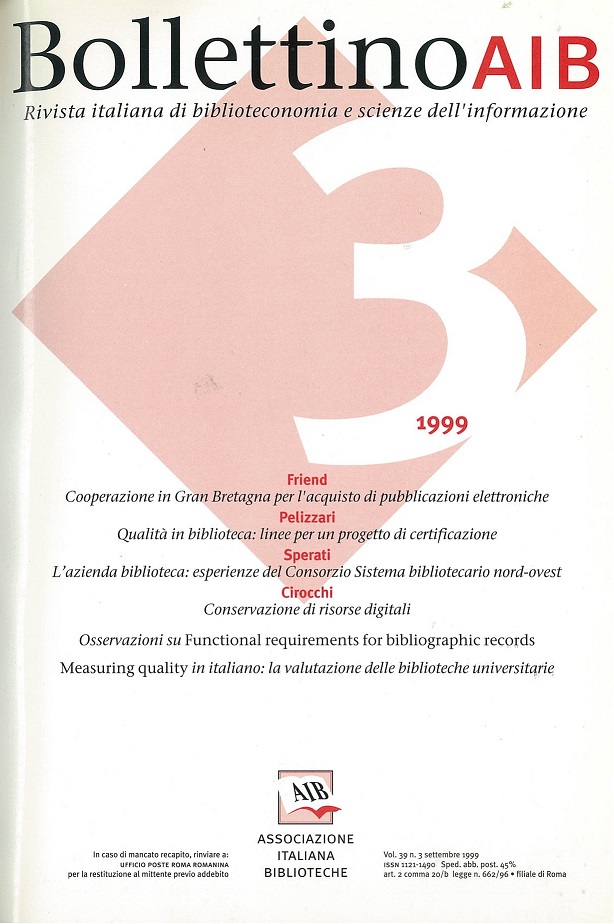Cooperation in the UK for the purchase of electronic publications
Main Article Content
Abstract
Virtually every publication that a university lecturer or a university student might need is now available in electronic format. Most journal publishers now make the full-text of their journals available through the World Wide Web but most libraries still choose to purchase the paper versions.
If we are to benefit from the electronic revolution we shall have to find ways of purchasing electronic publications which respect the independence of each library to take its own decisions and yet which also help libraries to purchase the publications they cannot afford to purchase. JISC was set up by the four UK Higher Education Funding Councils to promote the development of electronic information in UK universities. We do have regional library organizations and some electronic resources are purchased on a regional basis, but the best deals are those negotiated by JISC on a UK-wide basis. No library is forced to purchase any publication for which JISC has negotiated a national deal. They can decide to participate in one purchase but not in another. There has been a progression in consortium purchasing in the UK from the purchase of software through the purchase of datasets to the purchase of the full-text of electronic journals.
The negotiation of licences for full-text electronic journals has proved to be a much more complicated matter than the negotiation of licences for datasets, and JISC has set up a special programme for this purpose. The programme is called NESLI, which is the successor to another initiative in the UK : PSLI, or Pilot Site Licence Initiative. PSLI was very valuable, both financially and as experience in negotiating and administering a national licence, but it was only a three-year initiative and the time came to move on from a "pilot" into the kind of long-term arrangement higher education institutions need. A Steering Group has been formed to set up NESLI and to decide on questions of policy. The first key decision was that we should look for a Managing Agent to negotiate with publishers and to administer the new service. JISC does not have the staffing capacity to handle the licencing of hundreds of journals to hundreds of institutions. JISC awarded a three-year contract to a consortium of Swets UK Limited and the University of Manchester to act as Managing Agent for the NESLI service. The procedure we have established is that the Managing Agent negotiates a deal with a publisher, the terms of that deal are circulated to the NESLI Steering Group, and if the Steering Group is happy with the terms, the deal is offered to all university libraries in the UK, potentially 180 libraries. It is then a decision for each library whether or not to buy into the national deal that has been negotiated. Because of the time taken for negotiation very few deals were agreed for year 1999 subscriptions, and only 377 journal titles are currently available, but a large number will be offered for year 2000 subscriptions.
The legal arrangements are inevitably very complex and three main contracts have had to be drafted and agreed. Restrictive licensing can be as great a barrier to use of electronic publications as high prices, and we have to ensure that fair use is not only protected but also encouraged. The terms of the licence are also important in order to reassure librarians that the archiving of electronic publications will be possible. All depends now on the detailed negotiations which the Managing Agent are conducting with the publishers. Libraries are looking for a substantial discount on the prices they have been quoted individually. They will not take up any offers through NESLI unless there are savings.
One matter to which the Steering Group has already given a great deal of attention is the communication of information to the academic and publishing communities about the scheme. NESLI should not be perceived as solely for the benefit of the academic community. It offers publishers as well as users of libraries opportunities to make the change to electronic publication in a more secure environment than if we act independently. In principle in NESLI we have a product which users will be happy to use. Pricing will determine whether the product lives up to the promise, but the hope is that university students and staff will be able to read as many journal articles as they wish without counting the cost.
Article Details

This work is licensed under a Creative Commons Attribution-ShareAlike 4.0 International License.
